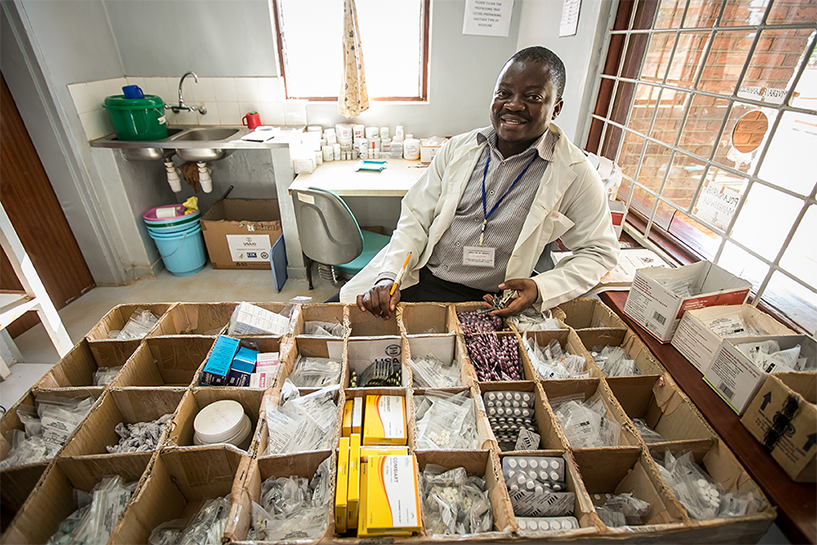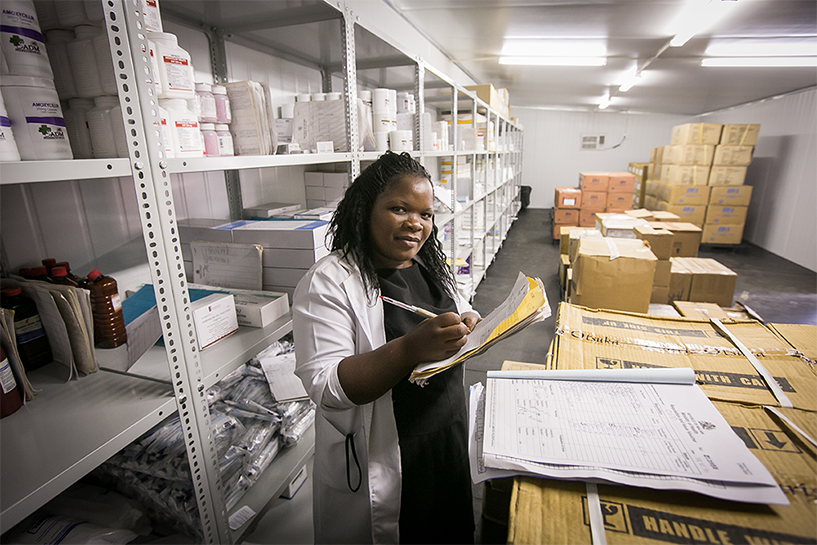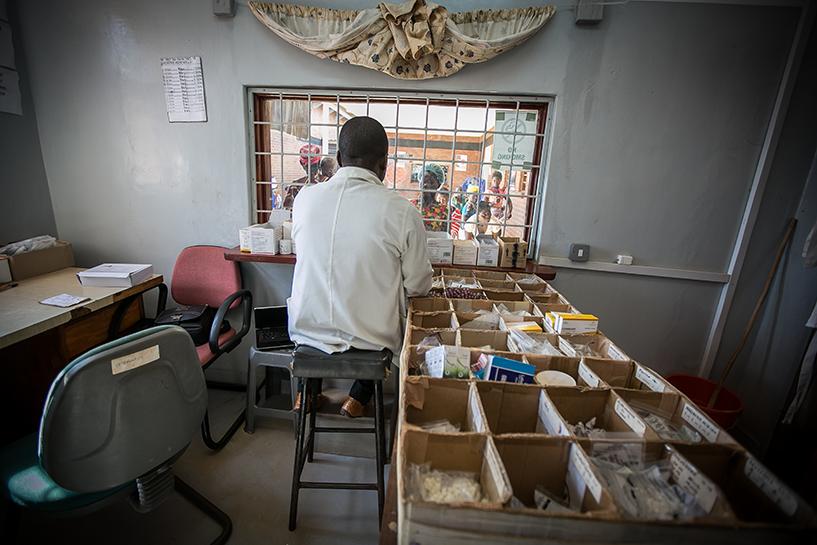Changes at the Drugstore: This Mentorship Program is Improving Malawi’s Rural Pharmacies
Changes at the Drugstore: This Mentorship Program is Improving Malawi’s Rural Pharmacies
By: Matthew Ziba, Senior Program Manager, Supply Chain at VillageReach

Many health facilities across Malawi don’t have enough trained pharmacy staff to adequately manage stock and dispense medicines. These tasks often fall on health care providers, who already have many other responsibilities, namely caring for patients. In some cases, even a ground laborer or a security guard—who may have no training in pharmacy management—must step in to help.
To address this gap, Malawi’s Ministry of Health and Population (MoHP) and its partners teamed up with the USAID Organized Network of Services for Everyone’s (ONSE) Health Activity to initiate the Pharmacy Assistant mentorship program. ONSE, which is led by MSH and implemented in coordination with a number of organizations, is USAID Malawi’s flagship health program in the country. It aims to reduce maternal, newborn, and child morbidity and mortality by supporting an array of initiatives in more than 400 health facilities across the country. VillageReach, one of MSH’s partners in the implementation of ONSE, specializes in last-mile service and commodity provision, supporting supply chain strengthening activities from district health centers to village clinics.

In essence, the mentorship program works with existing PAs to transfer basic skills to pharmacy clerks and, in the process, improve supply chain performance in those facilities. Under the mentorship program, PAs conduct monthly visits to health centers within their district to focus on specific challenges related to reporting, data quality, and medicines management.
The MoHP has set a goal to staff one PA in each of the approximately 650 rural health facilities around the country and is about halfway to reaching this goal, as it takes time to recruit and train each PA. As a manager on the Pharmacy Assistant program, I have had a first-hand view of how PAs contribute to serving patients in rural Malawi.
After two years of working as a PA, Aaron Sendeza “adopted” three facilities without a trained pharmacy clerk and started mentoring them, for one day each month, in basic dispensing and management of medicines and medical supplies in accordance with national guidelines. This mentorship model does not replace the need for more pharmacy personnel, but it provides an interim solution to improve Malawi’s pharmacy system.

“As the training takes place at the mentee facility, the PA mentors are able to progressively respond to facility-specific needs related to medicines and information management,” says Aaron. While still in its early stages of implementation, the eight health facilities supported by ONSE mentors have experienced the following measures of improvement:
- Reporting rates: All facilities are now reporting on time by the fifth of each month
- Data quality: An improvement in record completeness and a reduction in mathematical errors
- Reduction of overstock, stock-outs, and expired medicines: Mentee facilities can now place emergency orders and transfer out commodities nearing expiry, which minimizes losses
- Storage conditions: Maximized the shelf life of commodities and improved utilization of proper storage guidelines
- Dispensing environment: Improvements in tracking of medicines, cleanliness, and hygiene practices
“There has been change at the drugstore, it is better managed, it is visibly neat, and better organized,” says Obadia Chilambo, the head nurse for Mbang’ombe health center. Following Aaron’s mentorship of a health surveillance assistant, he says, “All transactions on requisitions are now recorded on file… not just on stock cards. This makes our reporting better.”
Patients visiting rural health centers throughout the country will soon benefit from the presence of a PA, thanks to the commitment of the Malawi government and a strong set of partners. Until that goal is reached, ONSE’s PA mentors are providing a critical service to ensure reliable access to lifesaving medicines in rural communities of Malawi.
Matthew Ziba is Senior Program Manager, Supply Chain at VillageReach. Based in Lilongwe, Malawi, he has been supporting the Pharmacy Assistant program since 2015.